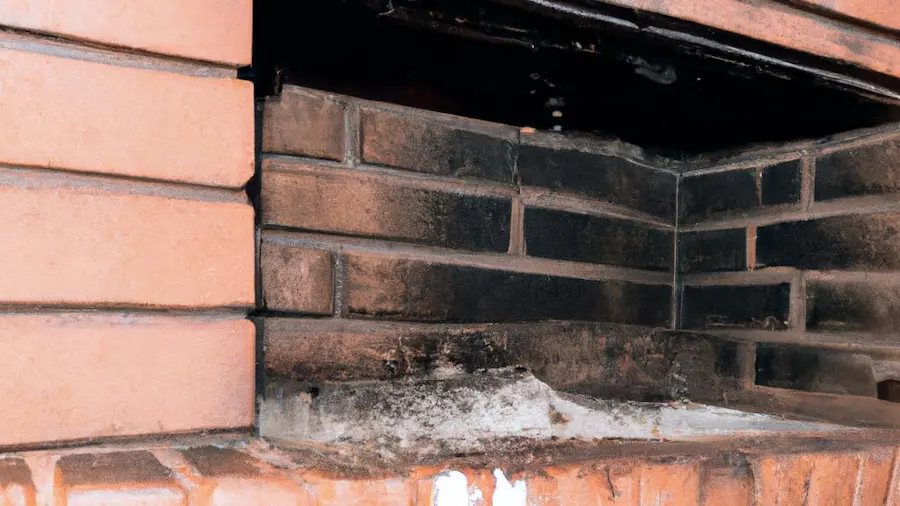~ 4 min read
How to Clean a Brick Fireplace [The Best Way]

Cleaning a brick fireplace can be challenging. Brick absorbs heat and can accumulate soot and grime. You can take steps before attempting to scrub your brick fireplace by hand to loosen some of the grime.
Why is it important to clean your fireplace regularly?
Brick fireplaces are made from porous bricks that can absorb a lot of soot over time. The soot from the fireplace can build up on the bricks, and when it does, the bricks can lose some of their lusters and sometimes look dark. But when the bricks are regularly cleaned, they will stay looking nice and can be more resistant to fire damage and cracking.
Brick fireplaces, even when not used, can still accumulate a lot of soot over time. This is true even if you regularly clean the fireplace and the bricks. The soot floating in the air can stick to the bricks, which can cause them to become dirty quickly.
The soot can still build up even if you have a clean, unused fireplace maintained regularly. Because of this, it is essential to clean your fireplace every once in a while.
What are the best products to use for cleaning a brick fireplace?
Even though brick is prevalent for fireplaces, there are many ways keep it looking great. One of the best ways to keep it looking its best is to clean it. Some natural products effectively remove brick grime without damaging the surface.
One easy solution is a solution of white vinegar and cream of tartar. You can combine these two ingredients in a 50/50 ratio and create a natural paste that you can apply to the brick. After using the paste, you can scrub it onto the brick surface with a natural brush.
For an even milder cleaning solution, you can simply use warm water. This solution is excellent for removing surface dirt or grime from your fireplace.
How often should you clean your fireplace?
The frequency with which you clean your fireplace bricks will depend on your fireplace type and how much you use it. If you have a modern gas fireplace that you only light occasionally, you only need to clean it once a year. On the other hand, if you have a fireplace that you use regularly, you should clean it every few months.
Using a damp sponge is the best way to clean your fireplace bricks. If you have a glass front, opt for a squeegee instead. You can also use a toothbrush and a soft scrubbing sponge to clean the jambs and other hard-to-reach places.
If you have a masonry or stone fireplace, use a mild masonry cleaner or a weak solution of bleach and water to clean the bricks. Avoid using abrasive cleaners and strong solvents, which will damage the surface of the bricks.
What are some tips for cleaning a brick fireplace?
If you have a brick fireplace, you will want to keep it in clean and sound condition to maintain its durability and beauty. Many brick fireplaces have been neglected and dirty over the years, and now they are crumbling away.
The best way to clean a brick fireplace is to use hot water, but you can’t soak it. Instead, work in a circular motion with a scrub brush, wire brush, or sponge. If the fireplace is filthy, add a mild detergent to the water.
Once you have scrubbed the surface, you should rinse it with clean water. Then, you can dry it with a damp cloth. Alternatively, you can dry with a hand dryer or a hairdryer.
It is best to clean your brick fireplace in the fall or early winter before the weather gets too cold and wet. You should not wait until the temperature drops below freezing for cleaning, or the water will freeze and expand into cracks and crevices, making the damage worse.
Overall, cleaning a brick fireplace is not a difficult task. With the right tools and a little elbow grease, you can have your brick fireplace looking like new in no time.
Related Reading: